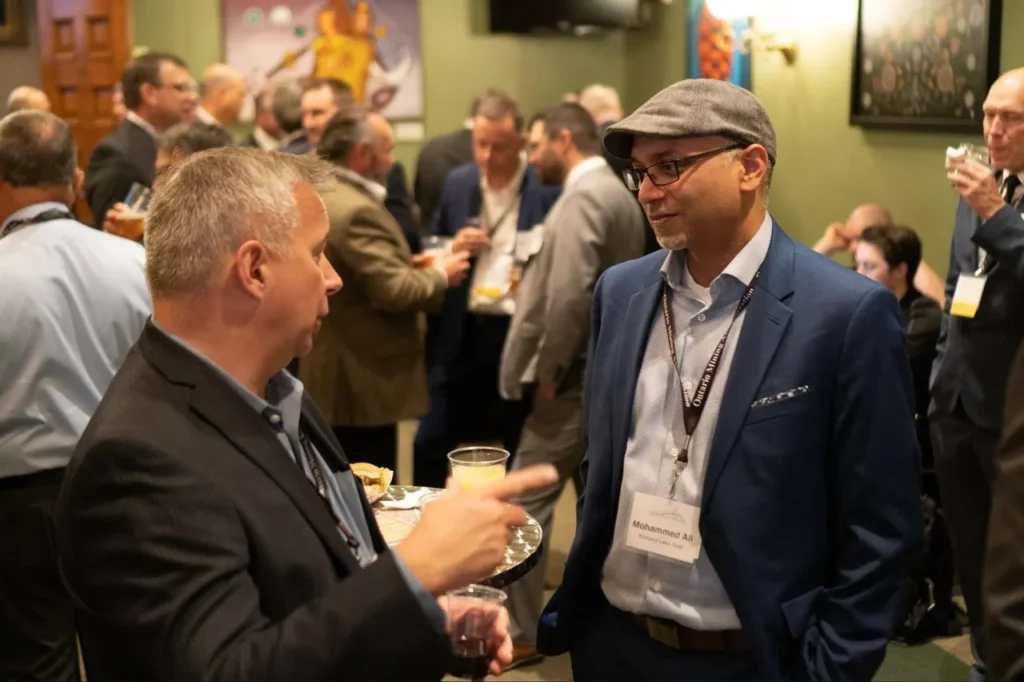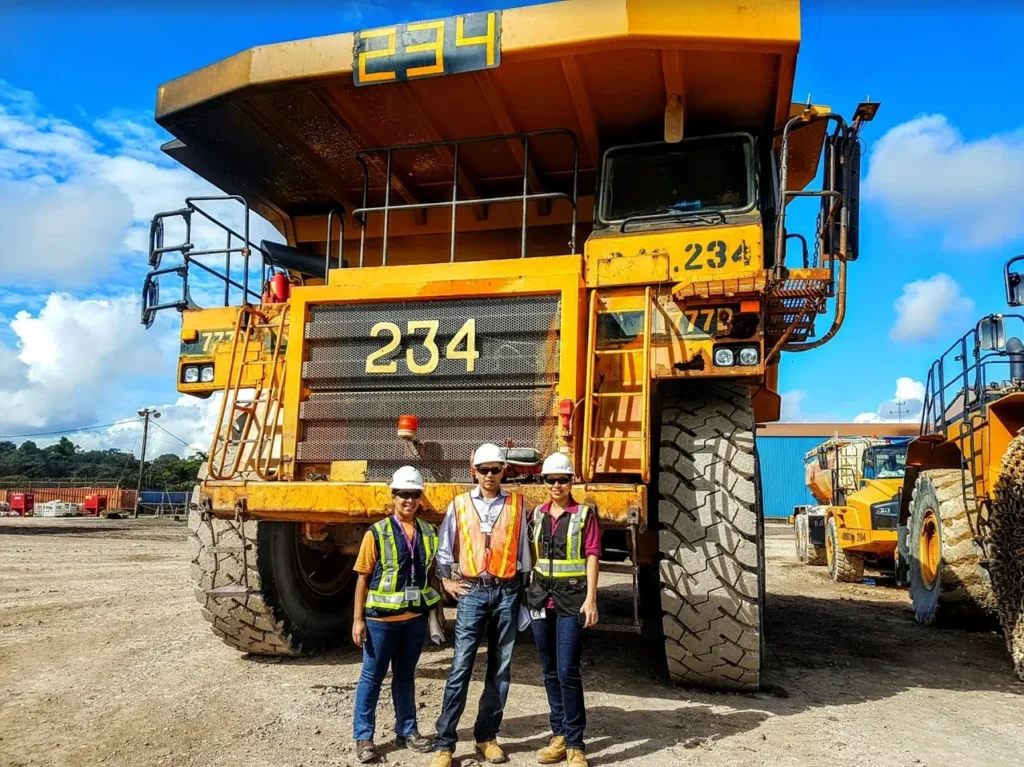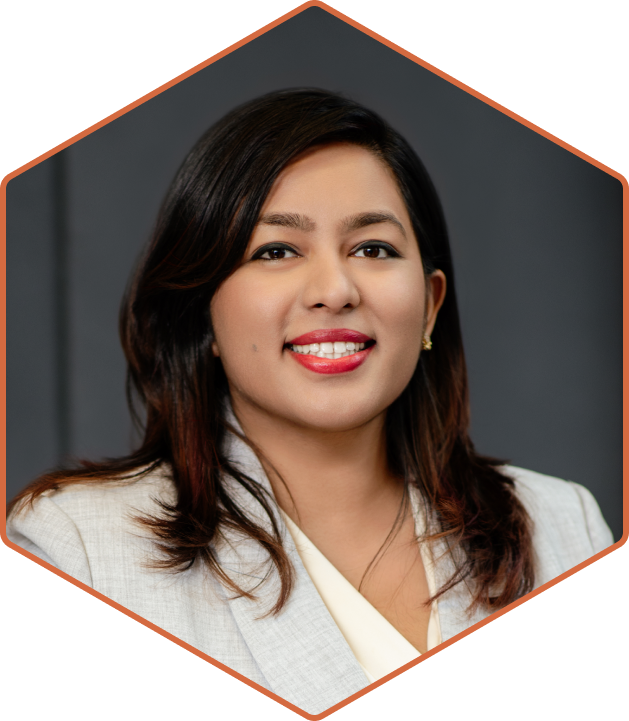
Our Quarterly YellowYellow (YY) Trailblazer series aims to shine the spotlight on industry professionals who are making a difference by prioritizing – and championing – sustainability.
Mohammed, who trained as a chemical engineer in Turkey, is now the Vice President of Sustainability and Regulatory Affairs of a global mining company. In addition to leading ESG and sustainability strategy, he is an active volunteer in the industry. He chairs various mining, environmental and sustainability committees and conferences around the world. From working to enact legislative change in sustainability to facilitating the convergence of ESG reporting as a member of the Canadian Sustainability Standards Board (CSSB), he has stepped forward to make an impact. In fact, the Canadian Institute of Mining has recognized his strong commitment to sustainability with the Central District Distinguished Service Award and the Sustainable Development Award.
Our interview with Mohammed reveals his lifelong passion for promoting sustainability in his work and volunteer endeavors. Read on to learn more about how Mohammed is doing his part to make an impact on the mining industry!
YellowYellow (YY): First and foremost, please give us a little background on yourself and your journey to get to where you are today.
Mohammed Ali (MA): I’ve always been interested in the environment and shifting the way we process things. I studied chemical engineering in Turkey. My thesis explored recovery systems and raw material optimization. I was curious about the circular economy, long before it was coined that way. I kicked off my career at a niche management consulting firm conducting life cycle assessment (LCA) and life cycle engineering to truly quantify sustainability efforts and carbon inventories for mining companies.
YY: So it sounds like you weren’t initially planning on going into mining, but it was the opportunity to work in sustainability that led you to that field.
MA: That’s exactly it. When I graduated, sustainability wasn’t an operational thing, it was a boardroom topic. Today it is more integrated into every aspect of the industry.
YY: As the VP of Sustainability and Regulatory Affairs of a mining company, what do you consider to be the biggest challenge in leading your company towards a greener future? How do you overcome these challenges to create strong ESG goals and strategies?
MA: Overcoming the negative perception of mining is our biggest challenge. The mining sector plays a crucial role in modern society and the mining of yesterday is not the mining of today. Like any industry, the mining industry has some bad actors, and this can generate a lot of headlines, and paint all mining companies with the same brush. One thing that we need to make clear is all the ways we have been able to reduce our impact and reclaim former mines back to their natural state. Although many aspects of reclamation are embedded in Canadian legislation, many mining companies do go above and beyond, and they work hard to leave the land in the same state they found it. It makes business sense to reduce or eliminate such liabilities.
The second challenge is trying to build that type of regenerative, circular philosophy into mining, and to design projects such that we can leave a positive legacy behind, ensuring that our footprint is minimalized, and our environmental impacts are benign.
One final challenge is the remote locations of mining projects. When you are developing projects in these remote areas, you don’t just build mines, you build communities. You need places to house the workers, places for them to shop and visit, hospitals, and schools. But mines have a lifetime, they don’t operate forever, so what do you do when there aren’t jobs to support everyone who lives in those towns? We want to avoid these so-called ‘ghost towns’, so we work hard to consider how we can fill the void that is left when mining is no longer operational.
As for how we overcome these challenges, there are many different things we try to do. First we focus on building the mining operation in a prolific mining area that allows us to operate in the region for decades so that we aren’t one and done and try to make long-lasting impacts. Secondly, we try to build a mine in a way that will allow us to deconstruct it when we’re done with minimal environmental and economic impacts. We start to calculate those closure responsibilities before we even break ground so that we know what we’re in for down the road. On the environmental side, we consider how we can reclaim the land, and remove our machinery/waste, while on the economic side, we try to think of spin-off industries that we can build up to support the residents of the communities when we leave. An important part of this is to use local skill development and procurement for every aspect of the mine so that we can build up a general skill base such that the town can support itself when the mine leaves. Other options are to look for other potential mineral resources nearby such that the town could then be supported by a new project. The main thing to remember is that all of these things take time. Sudbury and Timmins weren’t built in a day, but over time they’ve grown and developed into thriving multi-sector towns.
YY: How are Canadian mining companies doing with their long-term sustainability goals and targets? Are their goals ambitious enough?
MA: Canadian mining companies have very low emissions operations, thanks to clean power. While most companies have put in place quite ambitious goals, they will only be feasible if we use green energy and carbon capture technologies. One further aspect that helps us remain accountable is our relationships with Indigenous groups.
YY: How do you ensure that the sustainability solutions you devise in your Toronto office are received, understood, and implemented by your operations around the globe?
MA: What’s interesting about our operations globally, is that regardless of location, when it comes to emissions reductions and sustainability, it is still the same planet. The system boundary is the same, so it is essential that you reproduce the sustainability initiatives developed in one region that you can try to replicate to all operations where possible. The only challenge with this is remaining competitive in global trade and with global legislation.
YY: Any final thoughts?
MA: It’s encouraging to see how sustainability as a concept has progressed over the past couple of decades. We have moved on from: “why sustainability? to “how can we institutionalize sustainability so that it becomes integrated into our decision making?”.
Join us in congratulating @Mohammed Ali on his inspiring professional journey! A heartfelt thanks to Mohammed for kindly agreeing to be featured as our latest trailblazer and for sharing his insights on how to overcome industry challenges and champion sustainable practices.
Interested in nominating someone for our Trailblazer Series? Need help with your environmental, social and governance efforts? Drop us a line at: hello@yellowyellow.ca











